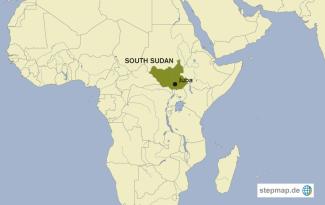Commodities
Paralysed by fuel shortages

Deng, who works as a teaching assistance at university, could not get petrol for his car last week, and had to buy some from roadside sellers at a higher rate.
“I bought three litres of petrol from the black market because I have to get to university on Monday to hold a lecture,” the young scholar says. “Each litre cost 80 South Sudanese pounds (the equivalent of roughly five dollars).” Regular petrol stations sell a litre of diesel or petrol for six pounds, but black-market prices are more than ten times higher.
Many people cannot afford them. Abraham Majok is one of them. “I’ll have to leave my car here at the petrol station because there is not enough fuel to drive home,” he complains.
Thousands of citizens have been affected by the fuel crisis in the past few months. South Sudan is a regional oil producer, and one of Africa’s oil-richest countries. But it lacks refineries, so it depends on fuel imports. When the civil war erupted in December 2013, oil production plummeted by nearly a quarter from 240,000 barrel per day (bpd) to 168,000 bpd. Accordingly, foreign-exchange revenues have dwindled, and the government can no longer import all commodities South Sudan needs. Over 90 % of its budget consists of oil revenues.
The government took over supply through the Nile Petroleum Cooperation company in mid-2014. Nile Pet, as the state-owned company is known, has since been supplying the petrol stations in Juba and elsewhere in the country. It charges petrol stations five pounds per litre, and the stations are supposed to sell it for six pounds. Station managers report, however, that supplies started to run low in September.
Mading Dau, the manager of the Wunbur petrol station in Sherikaat, a suburb south of Juba, says that all stations used to get three fuel tanks per week. “Now, several weeks pass without us getting even a single tank,” Dau adds. “As a result, some people do not get any fuel.” He points at cars queuing up in three 500 meter-long lines, and says: “There simply is not enough fuel.”
For housewife Joy Mary, the fuel shortage leads to an even more serious problem – water shortage. Like most of the people in Juba, Mary relies on water supplied in tanks to her home. The water tankers increased the price for a 120 litre barrel from six South Sudanese pounds (SSP) in May to 15 SSP in October, which is tough. But things got even worse: “In the past two weeks, only few water tankers came by. We had to fetch water from the Nile river or collect rain water,” Mary says. “We have no clean drinking water.”
The government responded to the fuel scarcity by sacking the managing director of Nile Pet in May and appointing a new manager. In November, President Salva Kiir dismissed him as well and appointed yet another one. Many people doubt he will be able to bring about lasting improvements.
Philip Thon Aleu is a journalist and lives in Juba, South Sudan.
pthonaleu@gmail.com







